
Main Page
Alphabetical Menu
Chronological Menu
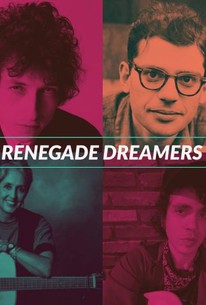
Renegade Dreamers, directed by Karen Kramer, is a timely, enlightening and inspirational documentary about Beat poets, writers and folk singers in NYC's Greenwich Village who dared to challenge the status quo and to stand up for human rights issues during the 1950s and 60s. Folk singers Bob Dylan and Pete Seeger along with poets such as Jack Kerouac, Wavy Gravy and Allen Ginsberg were among those brave, honest souls who spoke their mind and refused to be complacent. This isn't a documentary biopic about those individuals, but rather an introduction to them and what makes them so significant to this very day. They were outcasts who were fundamentally human beings in yearning for humanism in a society and world that was very dehumanizing. The same can be said the modern rebels from New York who Kramer introduces you to as well, namely, Matt Pless, Saroya Marsh, Tiffani Hillin, Gio Andollo and Jeremy DeHart. According to Jeremy, you're a rebel if you're romantic and passionate about you do and what you say---and you mean it. Renegade Dreamers is filled with many perceptive observations from interview subjects such as one who explains how Bob Dylan's folk music ignited a movement of "music that was written from the heart [and] slammed right in the face of the artificiality of society." and another who observes, "We were trying to create something from a very repressed, uninterested society. And you know something? That's been the situation for artists in history." Rebels, both past and present, protest through many kind of art, i.e. poetry, and essentially help to provide the words that other members of society don't know how to say. There's a lot of food for thought for audiences to absorb throughout this provocative doc, but do keep in mind that it's only 1 hour and 8 minutes long, so it never becomes exhausting. Editor David Petersen moves the film along at a brisk pace and do a great job of finding just the right balance between entertaining the audience and provoking them intellectually so that there's never a dull moment. It would make great double feature with the documentaries We Are Many, What is Democracy?, and The Life and Times of Allen Ginsberg as well as the upcoming drama The Last Black Man in San Francisco, a very poetic film that protests against gentrification, racism and poverty. Renegade Dreamers opens at Cinema Village. 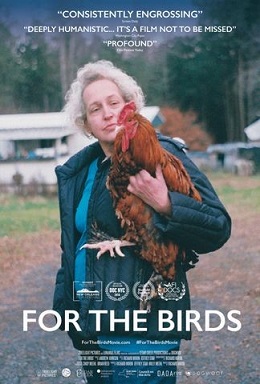
In the idyllic town of Wawarsing, New York, Kathy Murphy lives in a trailer with over 200 roommates, but those roommates aren't your ordinary roommates---they range from chickens to ducks, geese and turkey. She keeps them all as her own pets and values them more than she does her husband, Gary. Her daughters remains estranges from her which comes as no surprise. The Woodstock Farm Animal Sanctuary arrives every now and then to take some of the sick birds from her property, but Murphy isn't very happy about that. She's the subject of the documentary For the Birds. Director Richard Miron introduces you to his subject in a compassionate, fair and balanced way instead of laughing at her or judging her. You can make your own judgements about her if you wish to, though, because the doc doesn't delve into a psychological analysis of what led to her current mental state nor does it imply that she needs to be institutionalized. Throughout the doc, she seems unique, persistent, obsessive, passionate, warm and flawed. In other words, she's a human being. She doesn't care about what other think of her---after all, what other people think of us is actually none of our business, but that's a lesson that's easier said than practiced. Maude from Harold and Maude would probably be proud of her because, as she said to Harold, much of this world's sorrow comes from people who are unique individuals, but they allow themselves to be treated just like everyone else. Is Murphy truly happy? Is she rebelling or protesting against something? What is she rebelling or protesting against? The answers to those questions won't be clear even by the time the end credits roll, but perhaps it's none of our business nor that of the filmmaker's to pry into Murphy's life. Everyone has a public, private and secret life, so even though you do get a glimpse of her private life and the crumbling of her marriage, she's entitled to keep her past traumas that led to her hoarding as a secret. It's her life, and she has every right to live it freely the way she wants with flying colors (or birds, to be more accurate) as long as she doesn't cross any moral or legal boundaries. For the Birds opens via Dogwoof at IFC Center. 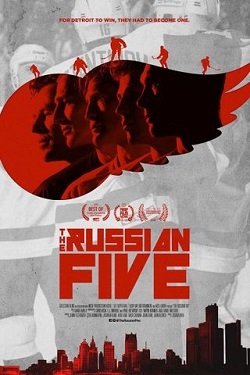 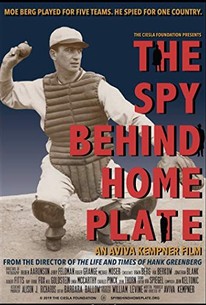
The other two docs opening this week, The Russian Five and The Spy Behind Home Plate, have one common trait: they're both sports documentaries that try to thrill. However, their similarities end there because they're very different in terms of quality. The Spy Behind Home Plate is a biopic doc about Moe Berg, a Jewish man who became a Major League baseball player for the Brooklyn Robins in 1923 while concurrently working as a spy for the Office of Strategic Services (OSS). Director Aviva Kempner provides some background information about Berg, his childhood, family and what his personality was like. He was charming with the ladies and was an all-around role model. Little did anyone know at the time that he was secretly a spy. Unfortunately, this doc often feels dull and dry like an academic film, but without any profound insights or revelations. It may sound like it could've been thrilling based on its subject's double life. However, its thrills fall flat. It too often feels too hagiographic and just going through the motions from one fact to another without much that's engaging or engrossing enough. By the time the interview subjects put Berg up on a pedestal at the end of the doc, you still won't get a true sense of what Berg was like as a human being. In other words, what were his flaws? Merely exalting him seems like hyperbole. Only avid fans of baseball might find this doc to be slightly entertaining, but still find it lacking in insight. It opens via The Ciesla Foundation at Quad Cinema. Another way to criticize The Spy Behind Home Plate is to describe a doc that does everything better. That doc would be The Russian Five which has more suspense, better editing and more intrigue. It follows the story of 5 Russians, Vladimir Konstantinov, Vyachaslav Koslov, Igor Larionov, Sergei Fedorov and Vlachaslav Fetisov who were drafted into the Detroit Red Wings in 1989 before the fall of the Iron Curtain. These men risked their lives to travel from Russia to America to join the hockey team. Their story, recounted in vivid detail with archival footage, contemporary footage and animated sequences, remains fascinating from start to finish. Even the anecdotal details are amusing to know. Director
Joshua Riehl and editor David Fabelo include brisk editing that moves the film along as though it were a thriller with a first act, second and third act. The less you know about the Russian Five's story, the more you'll be riveting by the turns of events which won't be spoiled here. You don't have to be a hockey fan to be entertained by The Russian Five. It opens at IFC Center via Gold Star Films.
The Fall of the American Empire 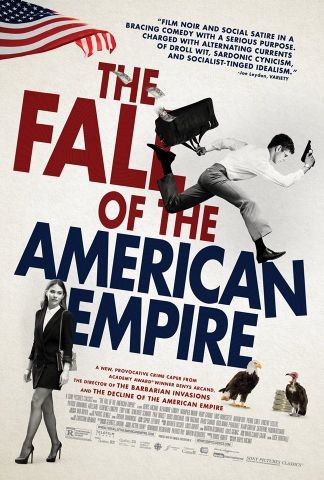 Pierre-Paul (Alexandre Landry), a deliveryman, finds a large bag with money that bank robbers left behind after a heist went wrong. He hires an ex-con, Sylvain (Remy Girard), to help him to launder the money. He also befriends a high-end hooker, Aspasie (Maripier Morin), who gets involved with the scheme. Meanwhile, police officers, Carla (Maxim Roy ) and Pete (Louis Morrisette), investigate them, and gangsters hunt them down to try to retrieve the stolen cash. The screenplay by writer/director Denys Arcand is intelligent with some dry humor and razor-sharp, biting social, political and economic commentary. It's a slow-burning crime thriller with a brain. As the plot progresses, it becomes increasingly intriguing and complex, but never complicated or confusing even though a lot goes on all at once. With a less talented screenwriter, this could've turned into a convoluted mess with all of its many characters and subplots. Fortunately, Arcand never infantilizes the audience with lowbrow humor or inane plot twists. Yes, there's some suspension of disbelief required by the time the end credits roll, but not too much that it takes away from the film's entertainment value. The less you know about the plot beforehand the better because it has some surprises up its sleeve as Pierre-Paul and Sylvain find clever ways to outsmart the police and the gangsters trailing them. The only minor flaws of the film are the weak performance by one of the gangsters, and the unnecessarily graphic torture scenes that could've left more to the imagination. Other than that, the rest of the scenes much more effective and even cerebral which is a breath of fresh air. At a running time of 2 hours and 8 minutes, The Fall of the Roman Empire is a provocative, witty and captivating crime thriller for adults. It's a great antidote to all of the loud, dumb and shallow blockbuster films.
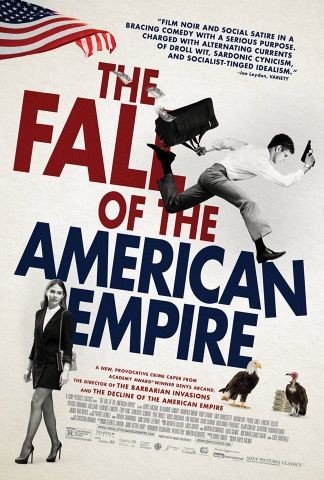 Ma 
 Mouthpiece 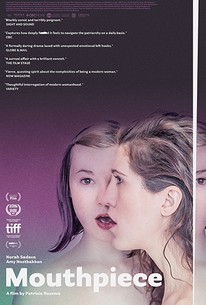 Cassandra (Norah Sadava and Amy Nostbakken), a young woman, has yet to cope with the recent death of her mother, Elaine (Maev Beaty). She has two days to prepare for her funeral, but meanwhile she reminisces about the rocky relationship she had with Elaine. Something happened between her and her mother one Christmas Eve which caused a rift in their relationship. Mouthpiece, directed and co-written by Patricia Rozema, is based on the play by Norah Sadava and Amy Nostbakken who are also the film's co-writers. It's a bold, unconventional character study of how grief takes its toll on someone who's lost a family members, but its style often gets in the way of its substance, and it's too heavy on the surrealism and symbolism. From the very beginning, there are two Cassandras played by two different actresses. Both versions of Cassandra are onscreen on the same time and have their own unique personalities. The filmmakers use that metaphor over and over without reverting to just 1 version of Cassandra, so it eventually becomes a repetitive, obvious and heavy-handed metaphor about the complexity of human beings. If the dual version of Cassandra were only included a few times, the message that the metaphor gets across would've been just as clear and wouldn't result in the audience thinking,"Okay, okay, we get it already!". Just when you think the film can't get any more unconventional, it does just that with two musical numbers that enliven the film with their slight campiness, but they lead to unevenness in tone. The flashbacks are integrated into the narrative in a clunky way, and they're excessive. Flashbacks, in general, are lazy narrative devices that too few films get right, and the ones that do, use them sparingly or at least have some warmth or wit or something along those lines that make the flashbacks merely a systematic, forgivable problem. In the case of Mouthpiece the excessive flashbacks are a system issue, and the film is low on both wit and warmth to boot. Norah Sadava and Amy Nostbakken give convincingly moving performances, but they're undermined by the film's style and clunky screenplay. The cinematography together with the lighting and set designs provide a surreal, dream-like atmosphere. Sometimes style can equal substance, i.e. in Yorgos Lanthimos' or Antonioni's unconventional films, however that can't be said for Mouthpiece once after its visual metaphor wears out its welcome early on. There's nothing wrong with breaking convention---in fact, it would be great if more filmmakers were to break it and take more risks---but it takes a far more imaginative and sensitively-written screenplay to make all of the unconventional elements work together like a well-oiled machine. Sometimes risks pay off and sometimes they don't. Even though the risks that the filmmakers of Mouthpiece always pay off, at least they can say that they tried to break the mold unlike other filmmakers who stick to the risk-free, but often banal, expensive and forgettable realm of conventionality known as Hollywood films.
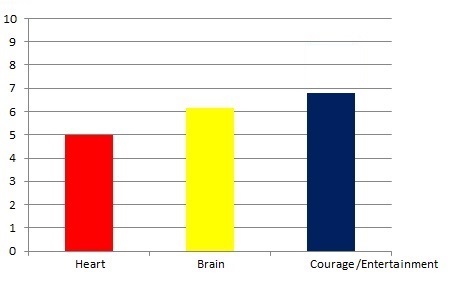 Main Page Alphabetical Menu Chronological Menu ______________________________________________________ |
The NYC Movie Guru
themovieguru101@yahoo.com
Privacy Policy